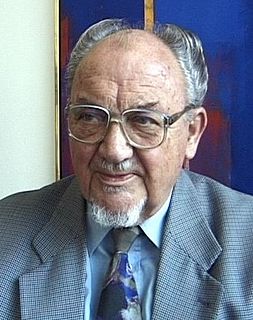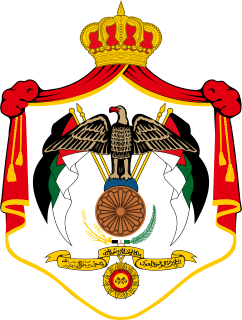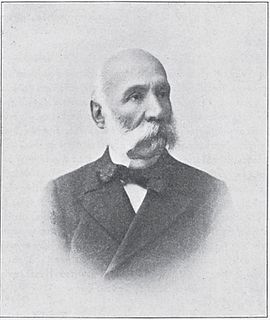
General elections were held in Denmark on 9 January 1975. The result was a victory for the Social Democratic Party, who won 53 of the 179 seats. Voter turnout was 88.2% in Denmark proper, 56.1% in the Faroe Islands and 68.7% in Greenland.
The Greens of Andorra is a green political party in Andorra.

General elections were held in El Salvador on 20 March 1994, with a second round of the presidential elections taking place on 24 April. Armando Calderón Sol of the Nationalist Republican Alliance won the presidential elections, whilst his party also won the legislative elections. Voter turnout was 50% in the first round of the presidential elections and 45.5% in the second, whilst it was 53.1% for the legislative election.

Folketing elections were held in Denmark on 28 October 1947, except in the Faroe Islands where they were held on 18 February 1948. The Social Democratic Party remained the largest in the Folketing, with 57 of the 150 seats. Voter turnout was 85.8% in Denmark proper and 60.1% in the Faroes.

General elections were held in Venezuela on 1 December 1963. The presidential elections were won by Raúl Leoni of Democratic Action, who received 32.8% of the vote, whilst his party won 66 of the 179 seats in the Chamber of Deputies and 22 of the 47 seats in the Senate. Voter turnout was 92.3% in the presidential election and 90.8% in the Congressional elections.

General elections were held in Jordan on 29 August 1951. As political parties were banned at the time, all candidates ran as independents, although some affiliated with the Jordanian Communist Party, the Ba'ath Party the Arab Constitutional Party and the Umma Party all won seats.
Parliamentary elections were held in Greece on 14 May 1865. Supporters of Alexandros Koumoundouros emerged as the largest bloc in Parliament, holding 95 of the 170 seats. Koumoundouros remained Prime Minister until 1 November, when he was replaced by Epameinondas Deligiorgis.

Parliamentary elections were held in Greece on 7 April 1885. Supporters of Theodoros Deligiannis emerged as the largest bloc in Parliament, with 170 of the 245 seats. Deligiannis became Prime Minister on 1 May.

General elections were held in Liechtenstein on 1 September 1957. The Progressive Citizens' Party won eight of the 15 seats in the Landtag, but remained in coalition with the Patriotic Union.

General elections were held in Brazil on 3 October 1994. The presidential elections were won by Fernando Henrique Cardoso of the Brazilian Social Democracy Party, who received 54.3% of the vote. Cardoso won the election by a margin of 27.3%, the largest in Brazilian history to date, and the first of his two landslide victories. The Brazilian Democratic Movement Party remained the largest party in the Chamber of Deputies and the Senate.

General elections were held in Portugal on 28 April 1918, following a coup by Sidónio Pais in December 1917. The elections were boycotted by the Democratic Party, the Evolutionist Party and the Republican Union, who had won over 90% of the seats in the 1915 elections.

Parliamentary elections were held in Portugal on 1 November 1942. The country was a one-party state at the time and the National Union was the only party to contest the elections, with no opposition candidates allowed to run.
Federal elections were held in Switzerland on 29 October 1939. The Free Democratic Party emerged as the largest party in the National Council, winning 49 of the 187 seats. Due to the outbreak of World War II, there were no elections in nine of the 25 cantons; Appenzell Ausserrhoden, Lucerne, Neuchâtel, Schwyz, Solothurn, Ticino, Valais, Vaud and Zug. In what became known as "silent elections", a total of 55 candidates were elected unopposed.
Folketing elections were held in Denmark on 7 June 1864. The National Liberal Party emerged as the largest faction, winning 40 of the 101 seats. Following the elections, Christian Albrecht Bluhme became Prime Minister on 7 July.

Presidential elections were held in Colombia on 10 February 1914. They were the first direct presidential elections since 1860. The result was a victory for José Vicente Concha of the Conservative Party, who received 89.1% of the vote. Vicente took office on 7 August.

Presidential elections were held in Colombia on 1 May 1938. Eduardo Santos of the Liberal Party was the only candidate after the Conservative Party decided not to contest the elections, and received 100% of the vote. Voter turnout was only 30.2%. Santos took office on 7 August.
The Economic Group was a political party in Estonia.
The Tenants' Union was a political party in Estonia.
Folketing elections were held in Denmark on 1 December 1854. Following the elections, Peter Georg Bang became Prime Minister on 12 December.
Folketing elections were held in Denmark on 14 June 1858. Carl Christian Hall remained Prime Minister following the elections.
















